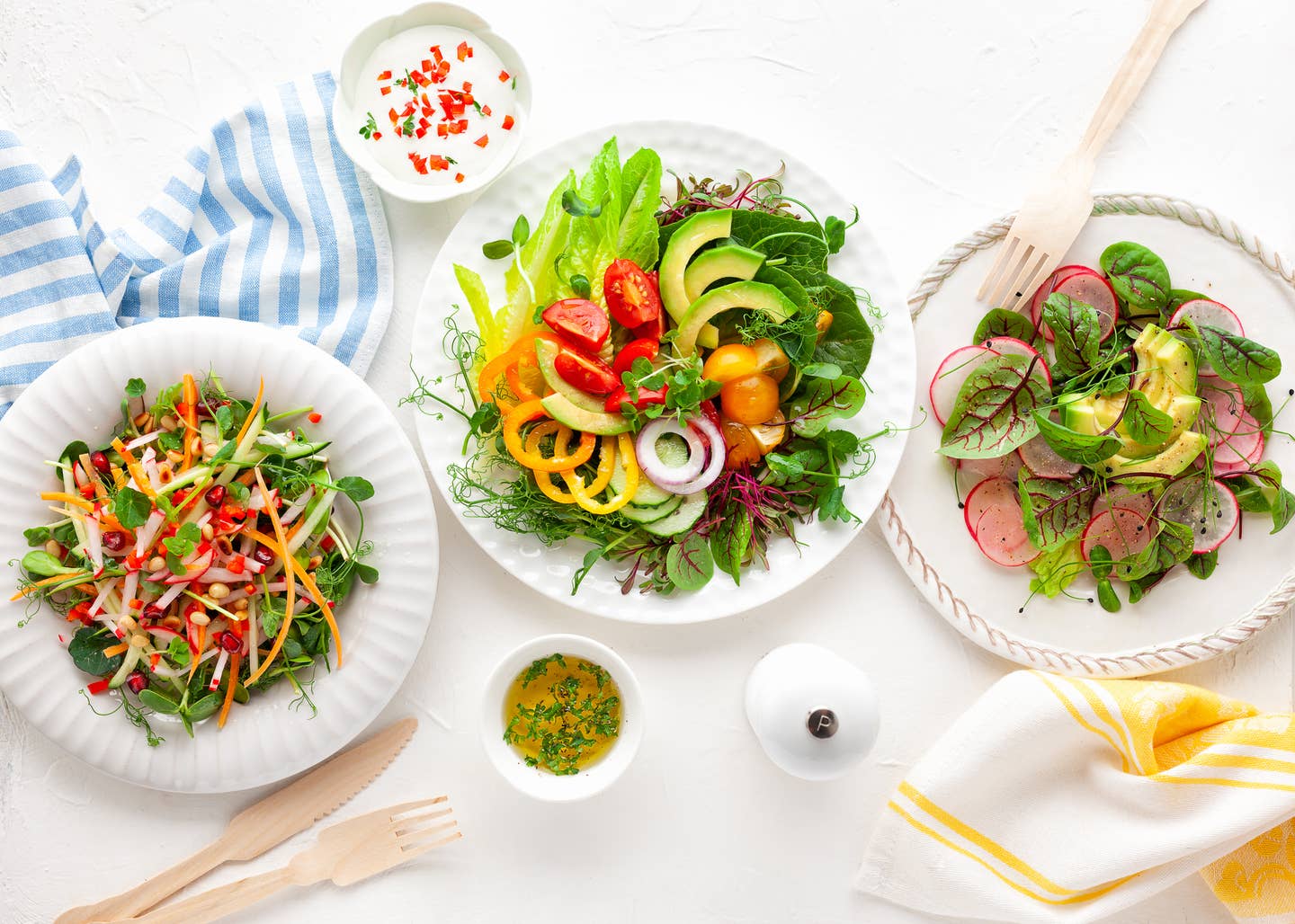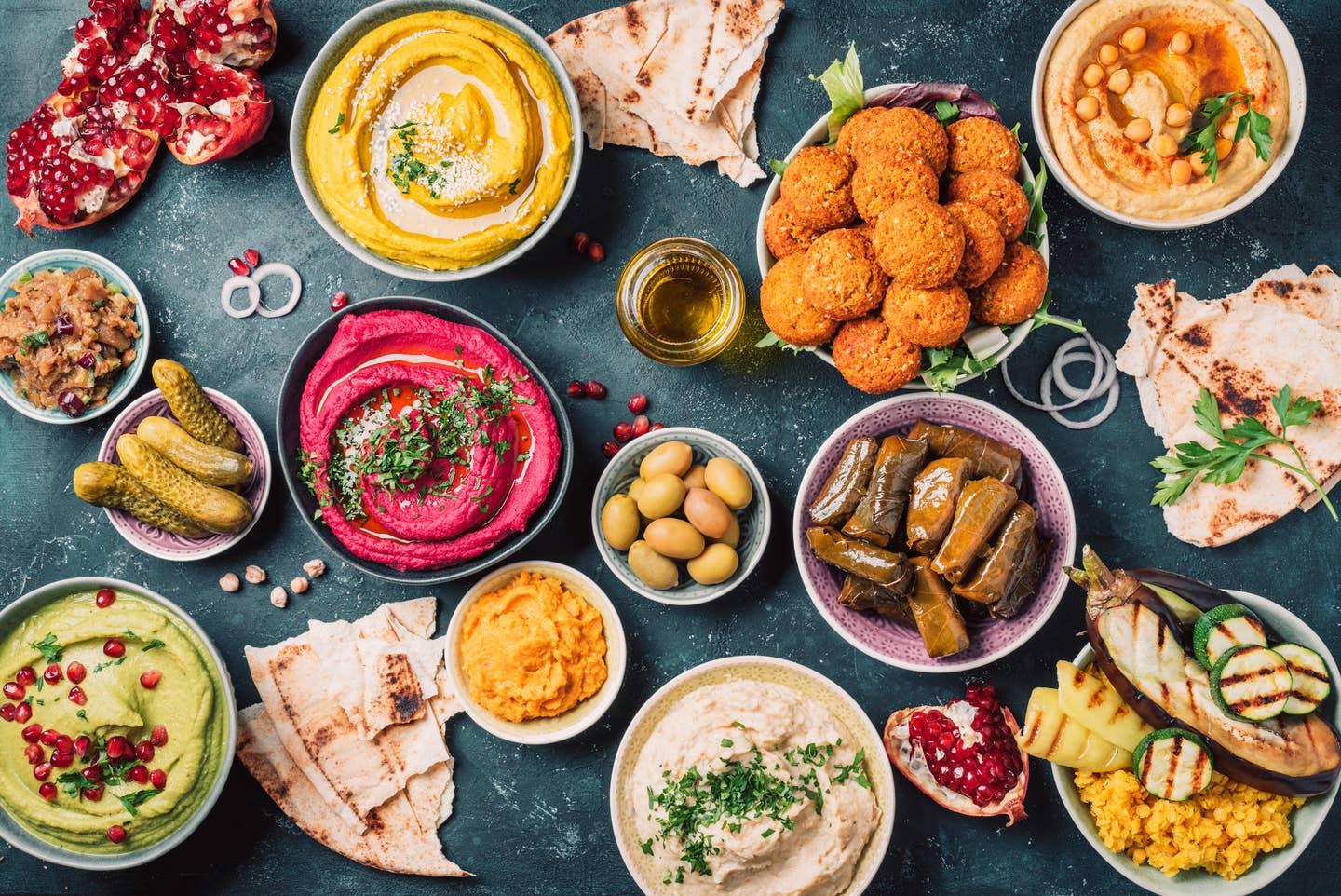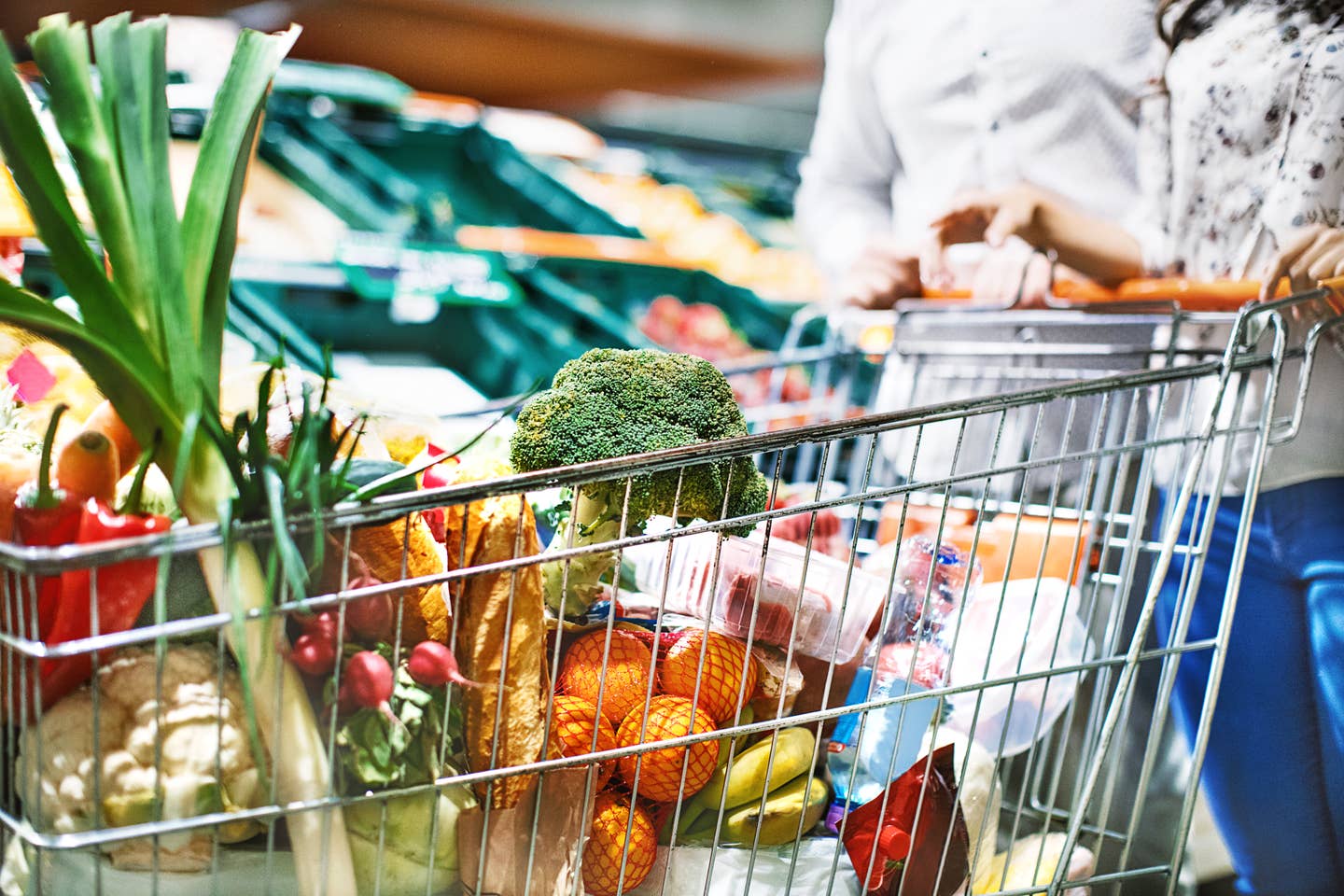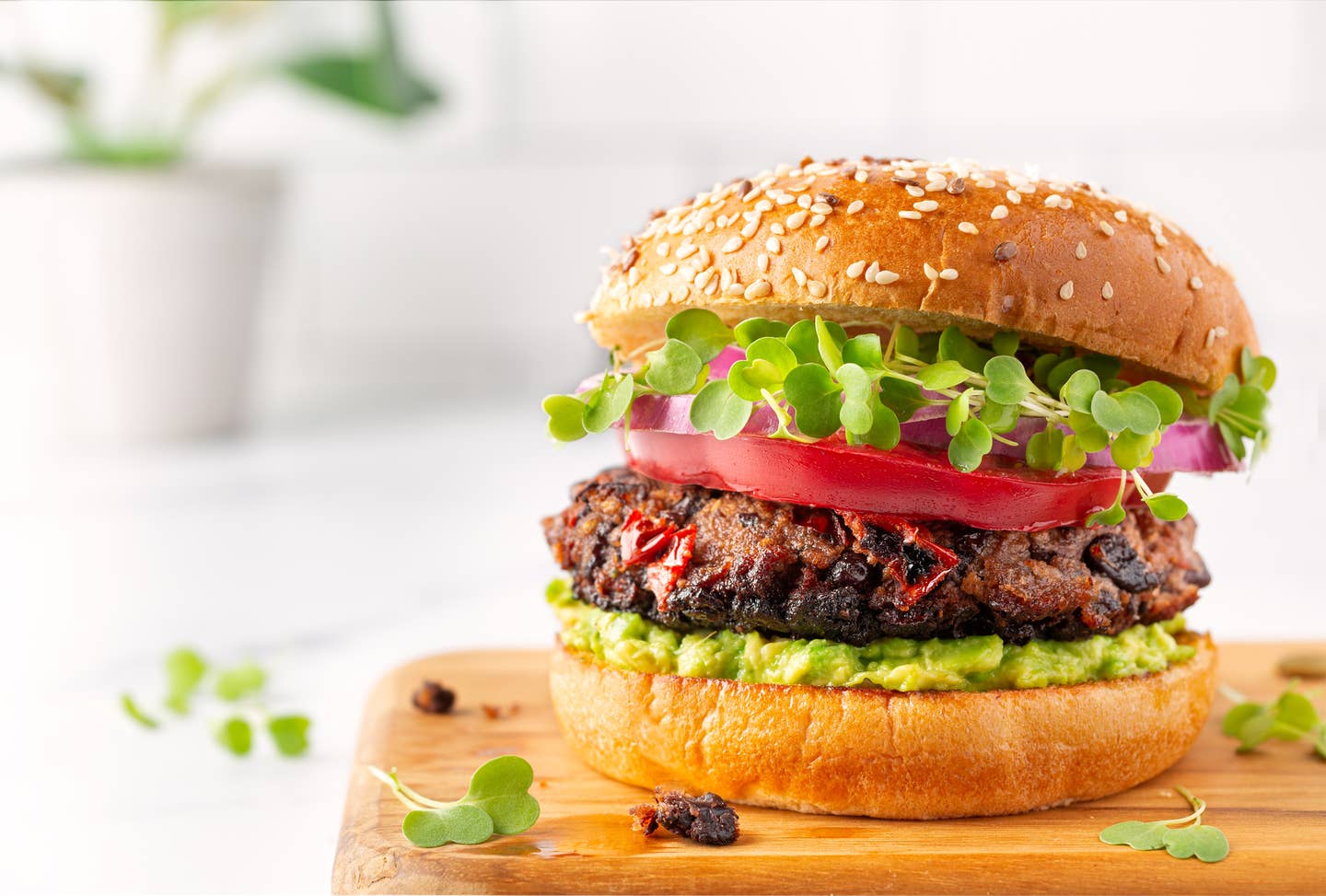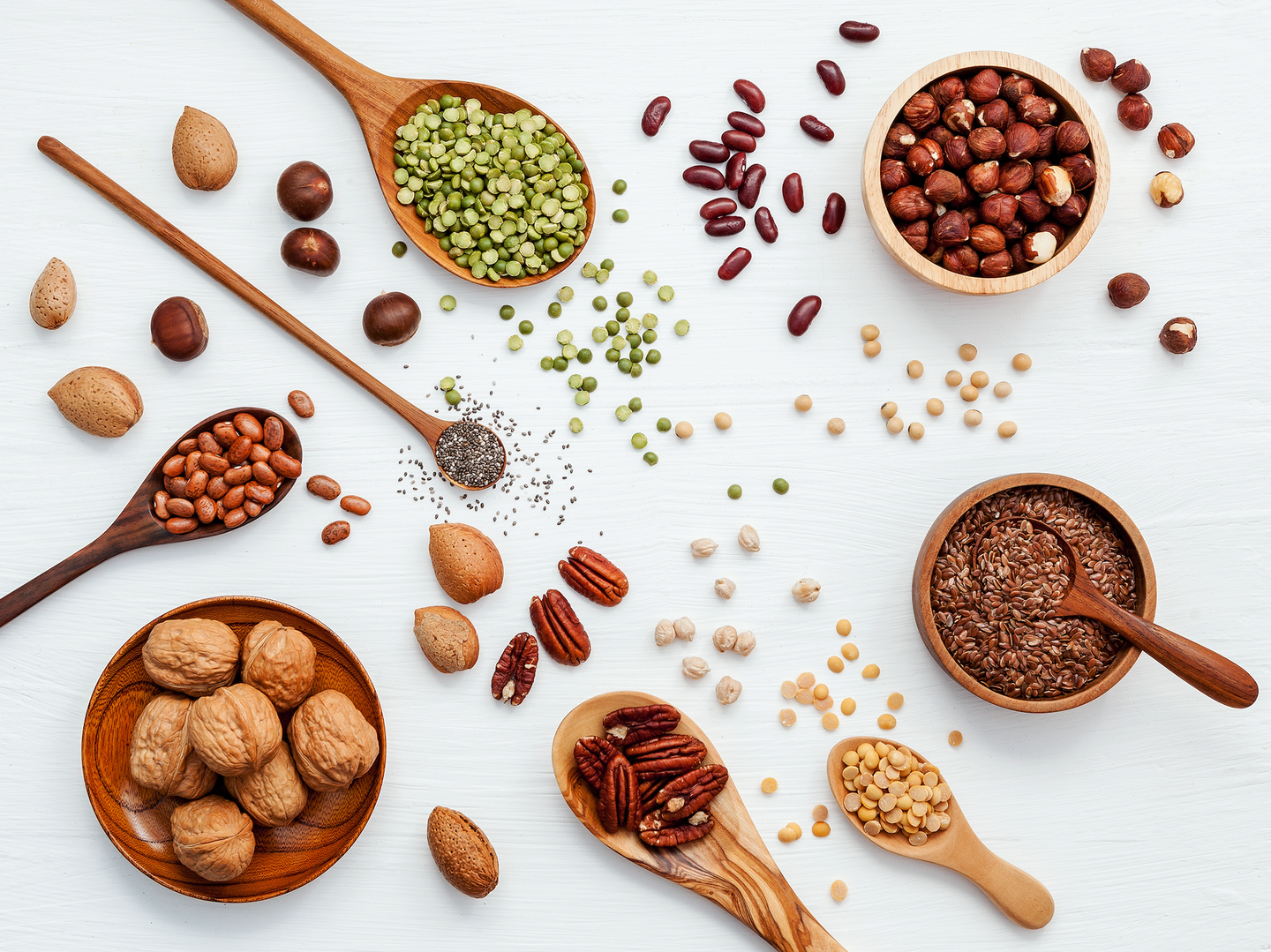
11 Nuts That Pack the Most Protein
Nuts are some of the healthiest foods on the planet — especially if you're looking for a protein-filled snack in a nutrient-dense package. While they're high in fat (nuts are about 80 percent fat), it's unsaturated fat, which is considered heart-healthy because it's thought to lower your overall cholesterol.
Are Nuts Good for You?
Nuts also contain fiber, Omega-3 fatty acids (the anti-inflammatory kind also found in fish), and vitamin E, which is good for your heart and your skin. Nuts contain powerful elements like L-arginine which some take to improve circulation and erectile dysfunction, and plant sterols, which are added to foods like orange juice to make them heart-healthier. Basically, nuts are superfoods.
The only downside to nuts is that they can be little calorie bombs. The American Heart Association recommends eating only four servings of unsalted nuts a week. It's also recommended to eat raw or dry-roasted nuts, not the oily, greasy or sugary ones. And note that a serving is a small handful (1.5 ounces) of whole nuts or 2 tablespoons of nut butter.
For the best choices when it comes to maximizing the protein content in your nut choice, we went to the USDA to find out which nuts pack the biggest protein punch.
What Nuts Are the Highest in Protein?
11 Nuts With the Most Protein
1. Peanuts
Peanuts are actually not nuts—they're legumes which grow underground, so they are in the same family as chickpeas, soybeans and lentils. Crazy stunt: Scientists have made diamonds out of peanuts by putting them under enormous pressure. 1 ounce equals Protein - 7.31 g Calories - 161 Carbs - 4.57 g Fiber - 2.41 g Calcium - 26.1 mg
2. Almonds
Almonds are part of the cherry, peach, and mango family, since they are a drupe (a fleshy fruit with skin thin and central seed). When you eat a peach or mango, notice how the pit looks similar to an almond. There are over 30 different varieties and eight out of 10 almonds are grown in California. It takes over 1 gallon of water to produce a single almond, or 1900 gallons to grow 1 pound. 1 ounce equals Protein - 6g Calories - 164 Carbs - 6.11g Fiber - 3.5 g Calcium - 76.3mg
3. Pistachios
Pistachios are one of the oldest nut trees in the world. Humans ate pistachios as early as 7,000 B.C. They spread across the Middle East to the Mediterranean and were viewed as a royal delicacy. 1 ounce equals Protein - 5.72 g Calories - 159 Carbs - 7.7 g Fiber - 3 g Calcium - 29.8 mg
4. Cashews
Get ready, because November 23rd is National Cashew Day! The U.S eats over 90% of the world’s cashews. These tree nuts start out as apples. Harvesters then take the seed from the bottom of the apple and before the seed is roasted, it is usually green. Roasting or steaming the cashew neutralizes the oils and makes them safe to eat—meaning raw cashews aren't *truly* raw. 1 ounce equals Protein - 5.16 g Calories - 157 Carbs - 8.56 g Fiber - 0.936 g Calcium - 10.5 mg
5. Walnuts
Walnuts contain more Omega-3 fatty acids than any other nut, so they are an excellent brain food to boost memory (they even look like little brains!). To keep them fresher longer, store walnuts in the fridge or freezer, since they have a tendency to go rancid quickly. 1 ounce equals Protein - 4.32g Calories - 185 Carbs - 3.89g Fiber - 1.9g Calcium - 27.8mg
6. Hazelnuts
Hazelnuts contain healthy doses of fiber, folate and vitamin E. Hazelnut oil is so rich it's used in combination with palm oil for cleaning and polishing wood. We love them with dark chocolate. 1 ounce equals Protein - 4.24 g Calories - 178 Carbs - 4.73 g Fiber - 2.75 g Calcium - 32.3 mg
7. Brazil Nuts
It is illegal to cut down a Brazil nut tree, which live for up to 500 years. These are like the candy of the nut family since a cup has 876 calories, and each nut is 85% fat and 14% protein. They're rich in selenium, a mineral prized for thyroid support. 1 ounce equals Protein - 4.06 g Calories - 187 Carbs - 3.33 g Fiber - 2.13 g Calcium - 45.4 mg
8. Pine Nuts
Pine nut is another type of seed that is clumped in with the nuts. They are so expensive because they are tedious to gather. They grow in the pine cone, but you generally can't consume pine nuts from a pine cone you'd find in your park or backyard as not all pine nuts are edible. Most of the pine nuts you eat come from the stone pine tree in Asia, Europe and North America. 1 ounce equals Protein - 3.88 g Calories - 191 Carbs - 3.71 g Fiber - 1.05 g Calcium - 4.54 mg
9. Pecans
French people who settled in New Orleans created the first pecan pie, since pecans are native to the southern US. On average, 78 pecans are used in one pie. There are over 1,000 varieties of pecans, and many are named after Native American tribes. 1 ounce equals Protein - 2.6g Calories - 196 Carbs - 3.93 g Fiber - 2.72 g Calcium - 19.8 mg
10. Macadamia Nuts
Macadamia nuts are actually seeds. It takes 12-15 years for a macadamia tree to grow to its full size. Most of the world’s macadamia nuts come from Hawaii. They are high in carbs and protein, but keep these nuts away from dogs since they make them sick. 1 ounce equals Protein - 2.24 g Calories - 204 Carbs - 3.92 g Fiber - 2.44 g Calcium - 24.1 mg
11. Chestnuts
Chestnuts are the only nut that contains vitamin C. The trees were hit by blight in the nineties and 3 billion trees were eventually wiped out. Chestnuts are used in beer and cake and eaten creamed around the holidays. Chestnut flour is gluten-free, making it a great alternative for cookies, pies and stuffing. 1 ounce equals Protein - 1.19g Calories - 63.5 Carbs - 13.9g Calcium - 5.1mg
Which Seeds Are Highest in Protein?
6 Seeds With the Most Protein
1. Pumpkin Seeds
The nutrients in a pumpkin seed are actually in the white shell. Bake them in a 300 degree oven with light seasoning or just salt for a minimum of 45 minutes and snack as you carve away. 1 ounce equal Protein - 9.2g Calories - 146 Carbs - 3.8g Calcium - 12mg
2. Hemp Seeds
Hemp seeds and marijuana come from the same plant, Cannabis sativa. The difference is that they are extracted from different parts of the plant (pot is the leaves, hemp is the seed). Hemp seeds also have .3% traces of THC, the euphoria-producing ingredient in pot, whereas marijuana contains anywhere from .4% and up depending on the strain. 1 ounce equals Protein - 6.3 g Calories - 110.7 Carbs - 1.7 g Calcium - 1.1%
3. Sunflower
Sunflower seeds come from the middle of the flower head. The type of sunflower seed is based on what sunflower hybrid it comes from. The two types fall under the category oilseed or non-oilseed type. 2 tablespoons equal Protein - 5.4g Calories - 163 Carbs - 6.7g Calcium - 19.6mg
4. Flax Seeds
Flax seeds are better digested if they are ground up. Whole seeds are harder to digest because of their shells. Quick tip: If you buy whole seeds, use a coffee grinder to make your own ground flax seeds and store in an airtight container for freshness. 1 ounce equals Protein - 5.1g Calories - 150 Carbs - 8.1 g Calcium - 71.4mg
5. Sesame Seeds
Sesame seeds can be used as a garnish or in the base of a smooth tahini sauce. Combine 2 cups of sesame seeds with a couple of tablespoons of avocado in a food processor and the product is a tahini to use on a salad or veggies. 1 ounce equals Protein - 4.7g Calories - 158 Carbs - 7.2g Calcium - 277mg
6. Chia Seeds
Because they can be used as an egg replacement, chia seeds make vegan baking easy. Combine one tablespoon of chia seeds with two to three tablespoons of water to make a single egg replacement for your next cake or brownies. 1 ounce equals Protein - 4.4g Calories - 137 Carbs - 12.3g Calcium - 177mg
Which Legumes and Beans Are High in Protein?
Top 15 Legumes and Beans
1. Soy Beans
Soybeans are a legume but they are such a great source of protein that we had to lead the veggie list with it. There is more protein in just one ounce of soybeans than a cup of sliced avocado! 1 cup equals Protein - 28.6g Calories - 298 Carbs - 17.1g Fiber - 10.3g Calcium - 175mg
2. Lentils
Lentils are the only beans that don't have to be soaked before preparing. Lentils can be the star of any dish that needs heft, from soups to burgers. Next time it's Taco Tuesday, try out lentil tacos—they pack a protein punch. 1 cup equals Protein - 17.9 g Calories - 230 Carbs - 39.9 g Fiber - 15.6 g Calcium - 37.6 mg
3. White Beans
Dried white beans can be stored for up to three years in a dry, room-temperature location. Which means you can keep them around whenever you need a staple for soups or stews. 1 cup equals Protein - 17.4 g Calories - 249 Carbs - 44.9 g Fiber -11.3 g Calcium - 161 mg
4. Edamame
Edamame is a great snack to keep in your freezer. Microwave them and spice them up with a sprinkle of salt, chili powder and red pepper flakes. You'll be enjoying a protein-filled snack that is better than chips. 1 cup (cooked and shelled) equals Protein - 16.9 g Calories - 189 Carbs - 15.8g Fiber - 8.1g Calcium - 97.6mg
5. Cranberry Beans
As you cook cranberry beans, the unique specks of red that give these legumes their name vanish. Boil the cranberry beans, blend into a spread and use as a delicious dip with veggies for a great protein snack. 1 cup equals Protein - 16.5 g Calories - 241 Carbs - 43.3 g Fiber - 15.2 g Calcium - 88.5 mg
6. Split Peas
Don't confuse split peas with green peas. Split peas are dried and—surprise— split. Unlike their sweet cousins, these peas must be boiled for 45 minutes before they're ready to eat. Make Ina Garten's easy Parker's Split Pea Soup for a protein-packed lunch. 1 cup cooked Protein - 16.3 g Calories - 229 Carbs - 41.1 g Fiber - 16.3 g Calcium - 27.4 mg
7. Kidney Beans
Make sure to soak these beans overnight to get rid of the toxic proteins in the raw bean that is harmful to people and animals. then cook thoroughly before eating. Soaking and cooking the beans will get rid of the harmful proteins. Then, dig in! 1 cup equals Protein - 15.3 g Calories - 225 Carbs - 40.4 g Fiber - 13.1 g Calcium - 49.6 mg
8. Black Beans
Black "turtle" bean is the technical name for this crowd favorite. The "turtle" part comes from the physical appearance of the shiny exterior shell that protects the bean. 1 cup equals Protein - 15.2 g Calories - 227 Carbs - 40.8 g Fiber - 15 g Calcium - 46.4 mg
9. Navy Beans
As you can see, navy beans are clearly not navy. So where did the name come from? These beans were such an important part of the U.S. Navy diet in the beginning of the 20th century that the beans were named after them. Anchors aweigh! 1 cup equals Protein - 15 g Calories - 255 Carbs - 47.4 g Calcium - 126 mg
10. Pinto Beans
Canned pinto beans aren't just a source of protein, but also major fiber. Pinto beans are often used as refried beans because they fall apart when steamed. 1 cup equals Protein - 15.4g Calories - 245 Carbs - 44.8g Fiber - 15.4g Calcium - 78.6mg
11. Chickpeas
What's better than hummus for boosting protein? Not much. Just half a cup delivers 10 grams of protein, which is a good percentage of your daily needs: ranging from 45 to 65 grams, depending on weight, gender and activity level. 1 cup equals Protein - 14.5g Calories - 269 Carbs - 45g Fiber - 12.5 g Calcium - 80.4 mg
12. Lima Beans
Lima beans are often called "butter beans" because of their buttery taste. Famously used in succotash, lima beans can also be used boost the taste of a hearty vegetable soup, or roast them with sweet potatoes as a side dish. 1 cup equals Protein - 14.7 g Calories - 216 Carbs - 39.3g Fiber - 13.2g Calcium - 32mg
13. Mung Beans
Mung beans lack a lot of flavor but are great to add to any dish for crunch and protein. Trade your chickpea-based falafel for a mung bean option to switch things up. Fact: Just Eggs uses mung beans for protein! 1 cup equals Protein - 14.2 g Calories - 212 Carbs - 38.7 g Fiber - 15.4 g Calcium - 54.5 mg
14. Fava Beans
Take the fava beans out of the pod since experts don't recommend eating that part. For freshest taste, only separate the beans from the pods when you 're ready to eat them. 1 cup equals Protein - 12.9 g Calories - 185 Carbs - 33.2 g Fiber - 9.18 g Calcium - 61.2 mg
15. Peas
Who knew little old peas pack a major protein punch? One cup of peas has more protein than one average-sized egg. Yep, you can make a bet and win it. 1 cup equals Protein - 8.6g Calories - 134 Carbs - 25g Fiber - 8.8 g Calcium - 43.2 mg
For more health-related content, visit The Beet's Health & Nutrition articles.
More From The Beet
